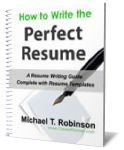"Electronics Engineering Technician"
Job Description - Part 3 - Skills Required
Part 1
Duties / Tasks
Part 2
Activities
Part 3
Skills
Part 4
Abilities
Part 5
Knowledge
Skills Needed for: "Electronics Engineering Technician"
1) Troubleshooting -- Determining causes of operating errors and deciding what to do about it.
2) Repairing -- Repairing machines or systems using the needed tools.
3) Equipment Maintenance -- Performing routine maintenance on equipment and determining when and what kind of maintenance is needed.
4) Equipment Selection -- Determining the kind of tools and equipment needed to do a job.
5) Time Management -- Managing one's own time and the time of others.
6) Reading Comprehension -- Understanding written sentences and paragraphs in work related documents.
7) Judgment and Decision Making -- Considering the relative costs and benefits of potential actions to choose the most appropriate one.
8) Operation Monitoring -- Watching gauges, dials, or other indicators to make sure a machine is working properly.
9) Complex Problem Solving -- Identifying complex problems and reviewing related information to develop and evaluate options and implement solutions.
| Thanks for visiting CareerPlanner.com | ||

|
1) Use Career Testing to find the perfect career 2) Is your resume getting you enough interviews? |
 |

|
Thanks for visiting CareerPlanner.com 1) Use Career Testing to find the perfect career 2) Is your resume getting you enough interviews? |
 |
10) Installation -- Installing equipment, machines, wiring, or programs to meet specifications.
11) Active Learning -- Understanding the implications of new information for both current and future problem-solving and decision-making.
Is being an "Electronics Engineering Technician" your very best career choice?
Our Career Interest Test will show you which careers match your interests.
Our Free Personality Test will show you which careers match your personality and why.
12) Service Orientation -- Actively looking for ways to help people.
13) Instructing -- Teaching others how to do something.
14) Active Listening -- Giving full attention to what other people are saying, taking time to understand the points being made, asking questions as appropriate, and not interrupting at inappropriate times.
15) Speaking -- Talking to others to convey information effectively.
16) Critical Thinking -- Using logic and reasoning to identify the strengths and weaknesses of alternative solutions, conclusions or approaches to problems.
17) Quality Control Analysis -- Conducting tests and inspections of products, services, or processes to evaluate quality or performance.
18) Coordination -- Adjusting actions in relation to others' actions.
19) Mathematics -- Using mathematics to solve problems.
20) Operation and Control -- Controlling operations of equipment or systems.
21) Systems Analysis -- Determining how a system should work and how changes in conditions, operations, and the environment will affect outcomes.
22) Learning Strategies -- Selecting and using training/instructional methods and procedures appropriate for the situation when learning or teaching new things.
23) Systems Evaluation -- Identifying measures or indicators of system performance and the actions needed to improve or correct performance, relative to the goals of the system.
24) Science -- Using scientific rules and methods to solve problems.
25) Technology Design -- Generating or adapting equipment and technology to serve user needs.
26) Writing -- Communicating effectively in writing as appropriate for the needs of the audience.
27) Management of Personnel Resources -- Motivating, developing, and directing people as they work, identifying the best people for the job.
28) Operations Analysis -- Analyzing needs and product requirements to create a design.
Job Description for "Electronics Engineering Technician" continued here...
Part 1
Duties / Tasks
Part 2
Activities
Part 3
Skills
Part 4
Abilities
Part 5
Knowledge
"Electronics Engineering Technician" Holland / RIASEC Career Code: R-I-C SOC: 17-3023.01
Click here for "Electronics Engineering Technician" Jobs
See the Future Outlook and Educational Requirements for "Electronics Engineering Technician"
Our Most Popular Products





